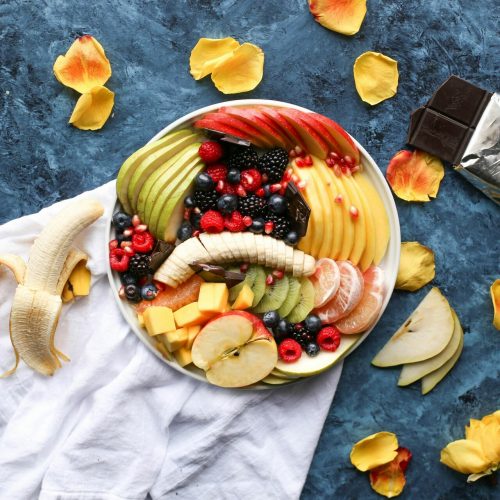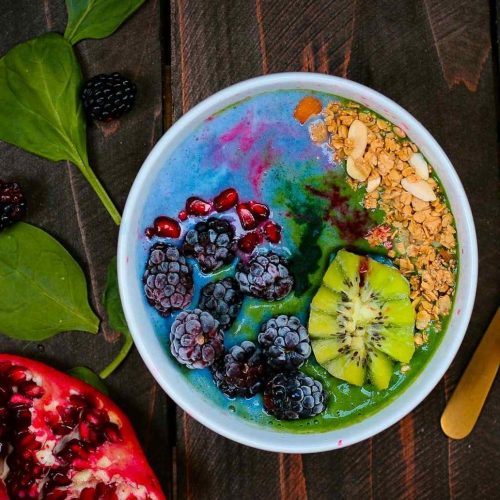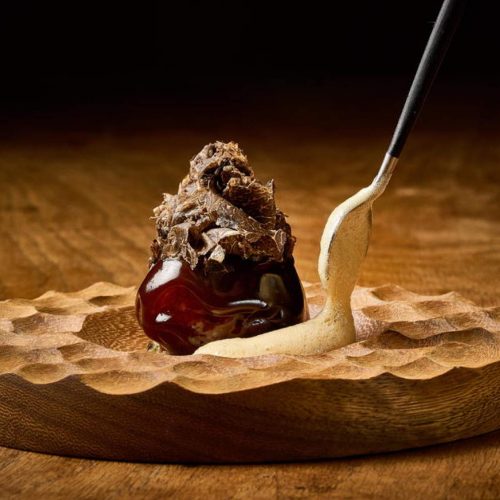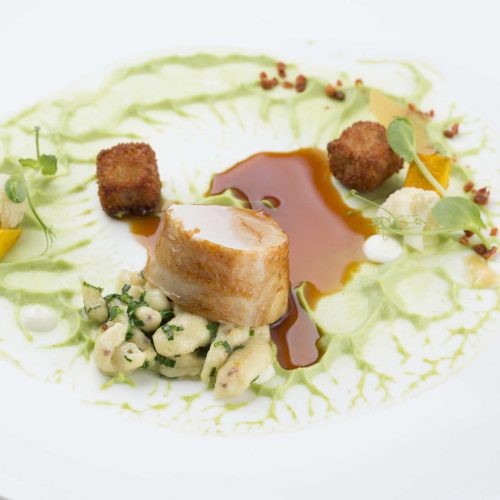Best Sustainable Fine-Dining Restaurants Worldwide
When we talk about sustainability in the restaurant industry, the challenge doesn't stop at tackling food waste and plastic packaging, but goes beyond: how food is sourced; seasonality, how far ingredients travel, not to mention responsible suppliers. Challenging as it may seem, there are restaurateurs and chefs who are committed to leading the way in doing good for the planet. We've rounded up some high-end restaurants that combine their impeccable culinary crafts with sustainability, without compromising on quality.
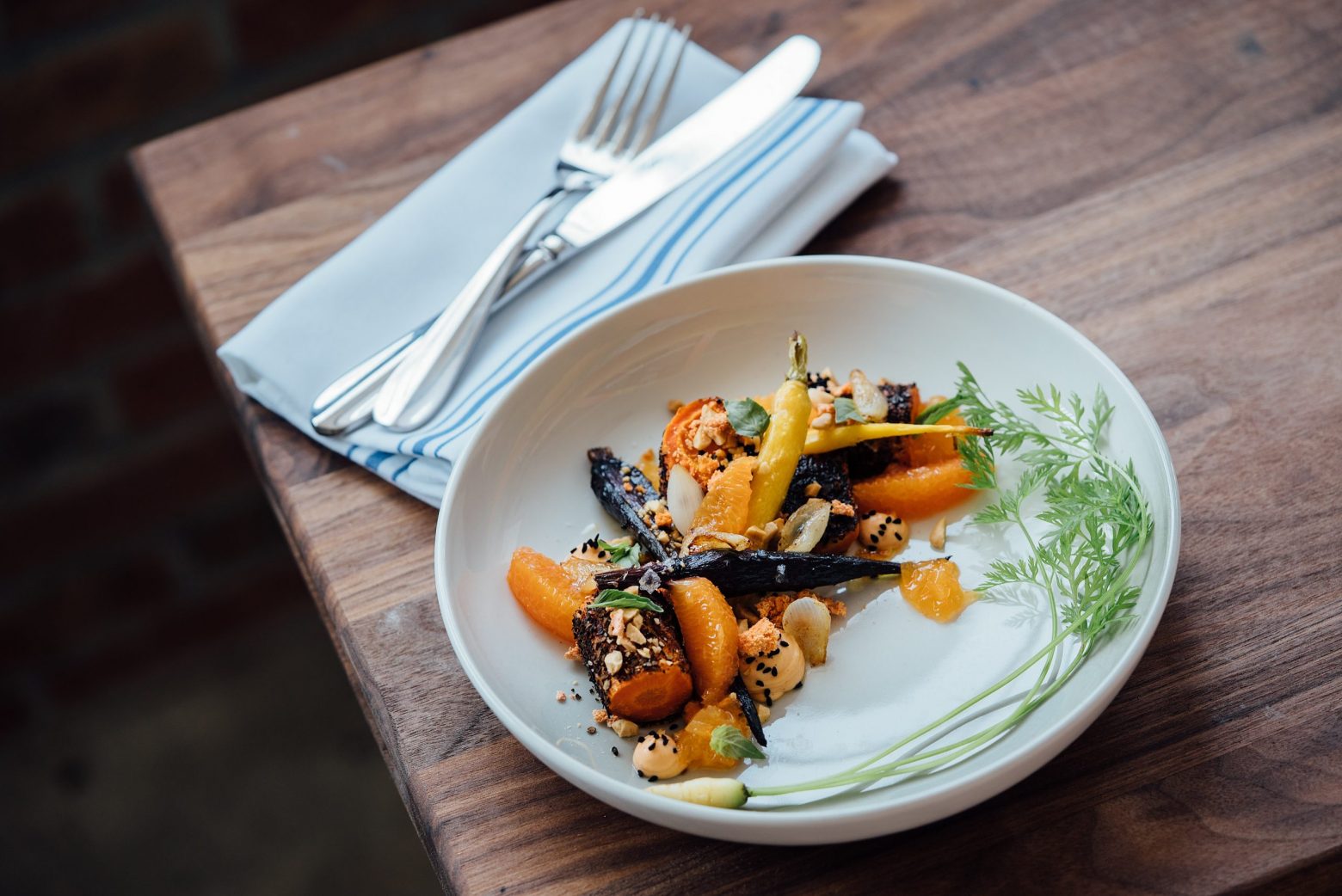
“I want to elevate the humble vegetable to a grand cru” –Alain Passard, Chef of L’Arpège.
L’ARPÈGE, FRANCE
Alain Passard is a world-class rôtisseur known for his passion for slow-cooking meat, which later switched his culinary focus to vegetables in the early 2000s in response to the ravages of the Mad Cow crisis. He describes this phase as an "awakening" moment" when he discovered the bountiful produce of the garden and realised he had never given them a chance to shine on his dishes. Since then, his culinary journey has revolved around vegetables and soon after he became the owner of two impressive gardens - covering over three hectares - that provide organic vegetables for Arpège.
L'Arpège, a three Michelin-starred restaurant, aims to offer cuisine that has yet to be explored to its fullest extent. And with its vast gardens, L'Arpège has the advantage of being self-sufficient in vegetables, herbs, spices and fruits. Each year, the gardens produce about 40 tonnes of vegetables, using 100% natural methods. “At L’Arpège, every ingredient comes with its own passport and provenance, and we know the experts behind all our products: gardeners, cheese makers, livestock breeders, fisherman, etc. I love working with people I know and trust!”
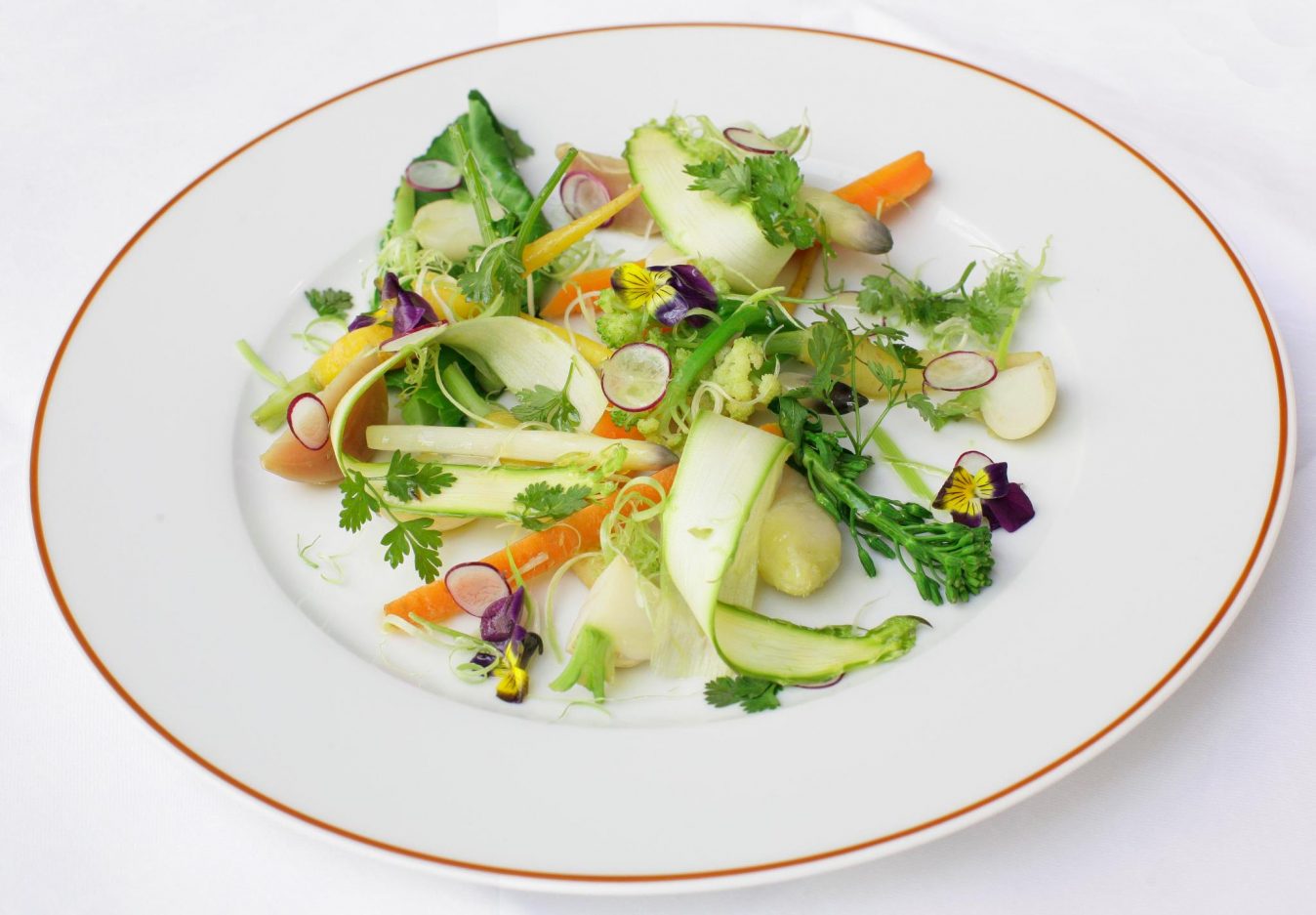
© L'Arpège
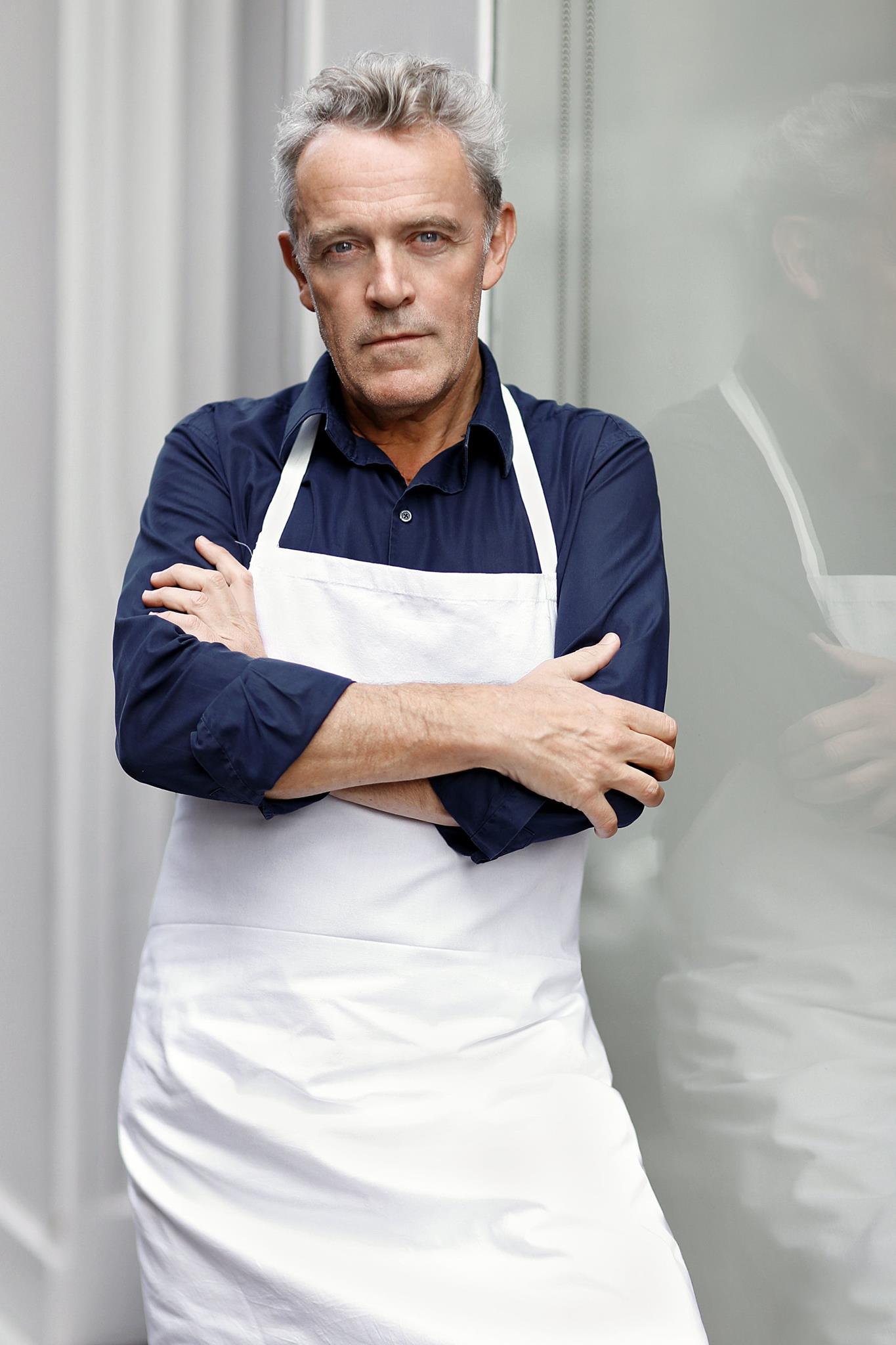
Chef Alain Passard © L'Arpège
SCHLOSS SCHAUENSTEIN, SWITZERLAND
Nestled in the remote Swiss countryside, Fürstenau, Schloss Schauenstein is the winner of the 2019 Sustainable Restaurant Award from The World's 50 Best Restaurants. The picturesque restaurant is helmed by Chef Andreas Caminada who embraces the local produce to create unique, fine and luxurious dishes - sometimes you have to wait eight months to get a table and taste his culinary creations. The three-Michelin-starred restaurant with nine one-of-kind individual guestrooms has an extensive garden and three greenhouses laden with vegetables, herbs and fruits. In addition, the chef also works closely with local organic farmers.
Taking the sustainability issue seriously, Chef Caminada has built a small coffee roastery next to the castle, and they also bake their own organic bread in a wood-fired bakery. In terms of energy supply, the restaurant uses 100% renewable energy, using hydropower and hydroelectricity to power all elements of the restaurant and hotel rooms. All local produce is delivered in reusable packaging (baskets and glass), and all remaining packaging is collected by a local company that converts it into renewable energy. The restaurant has another sustainability commitment that is looking after its community, in 2015, they founded Fundaziun Uccelin, a foundation that seeks out young, talented hospitality professionals. With its global network, the foundation creates a unique opportunity for the next generation to gain insights into global culinary diversity.
According to The World's 50 Best Restaurants, Schloss Schauenstein is "the perfect example of progressive kitchen of the future. In an isolated location, that could be deemed nigh-on impossible to produce a restaurant with such sustainability credentials."
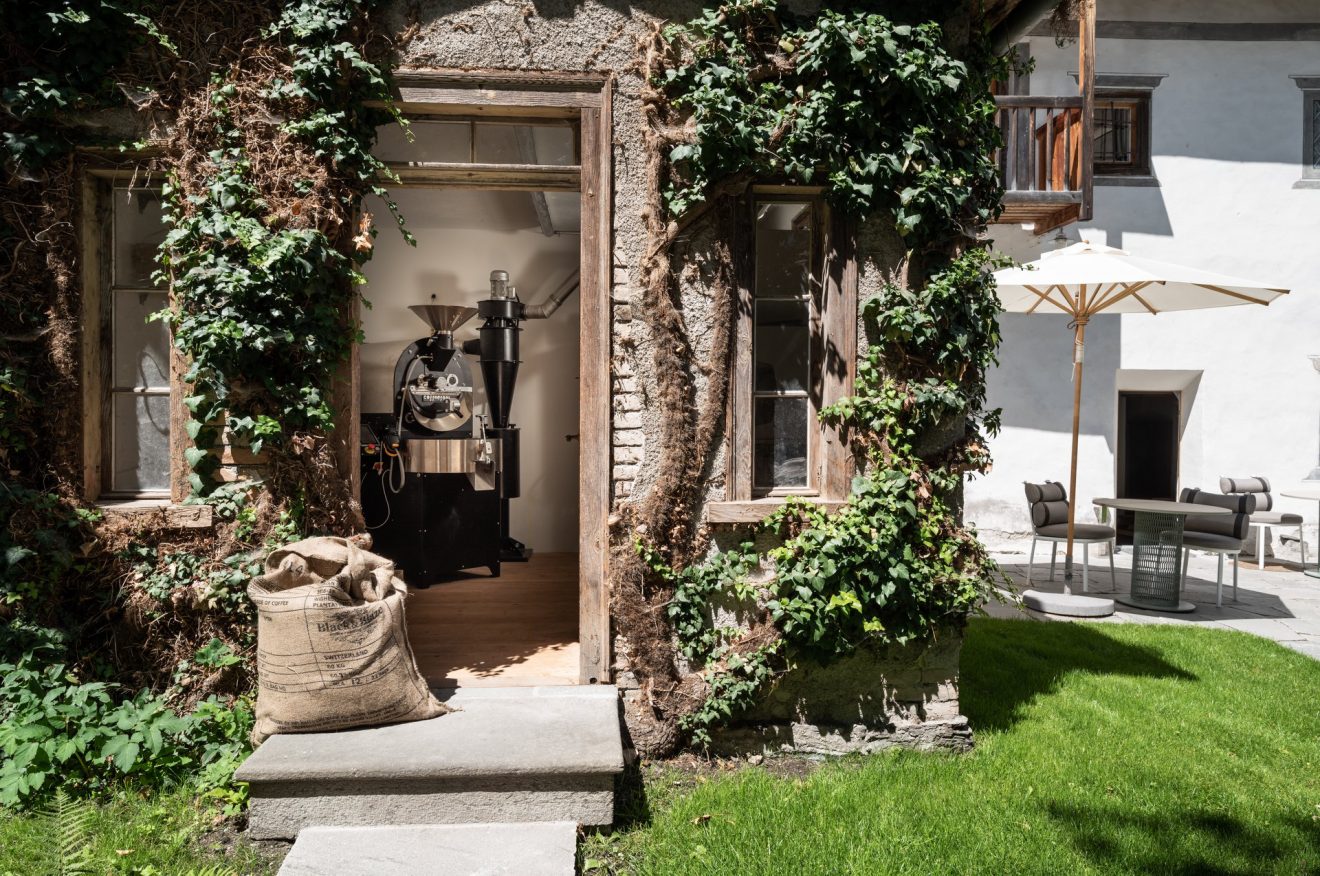
© Andreas Caminada
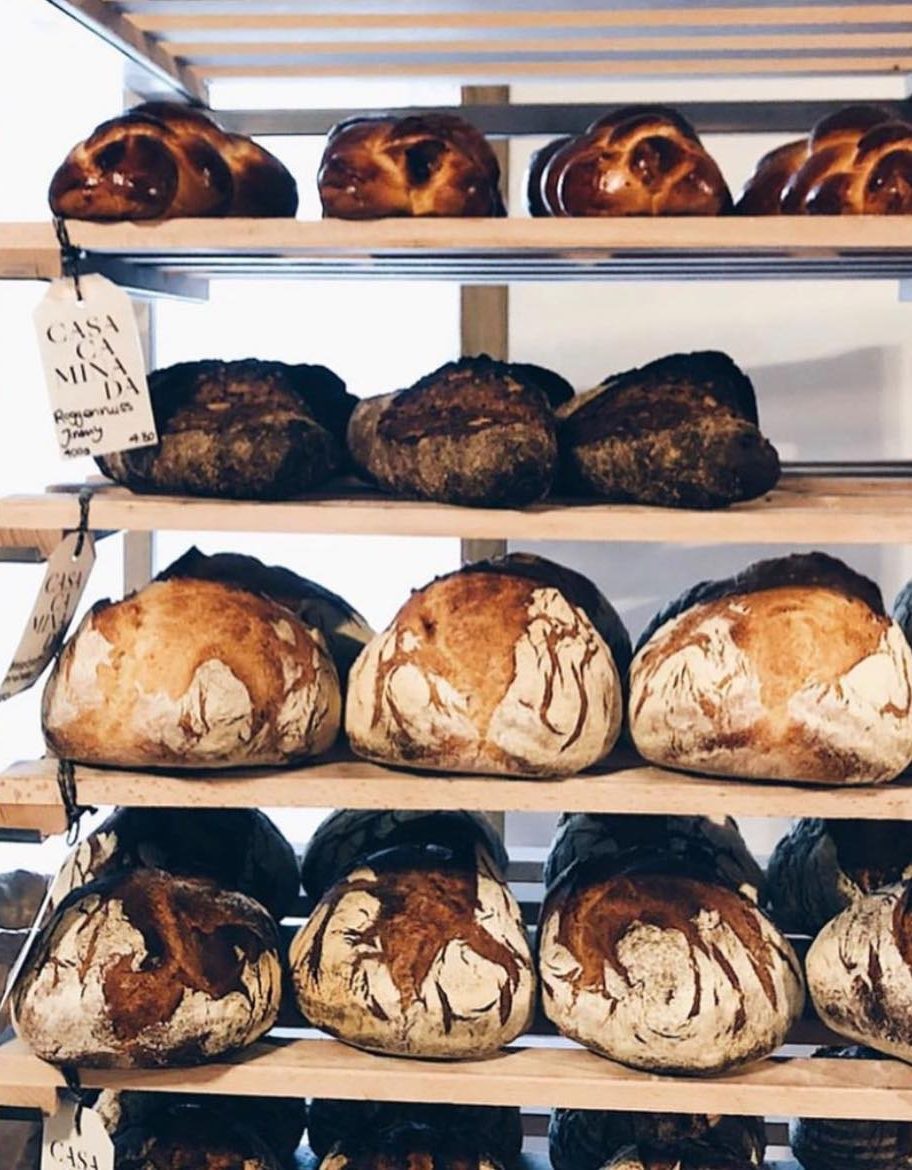
Casa Caminada's fresh organic bread © Andreas Caminada
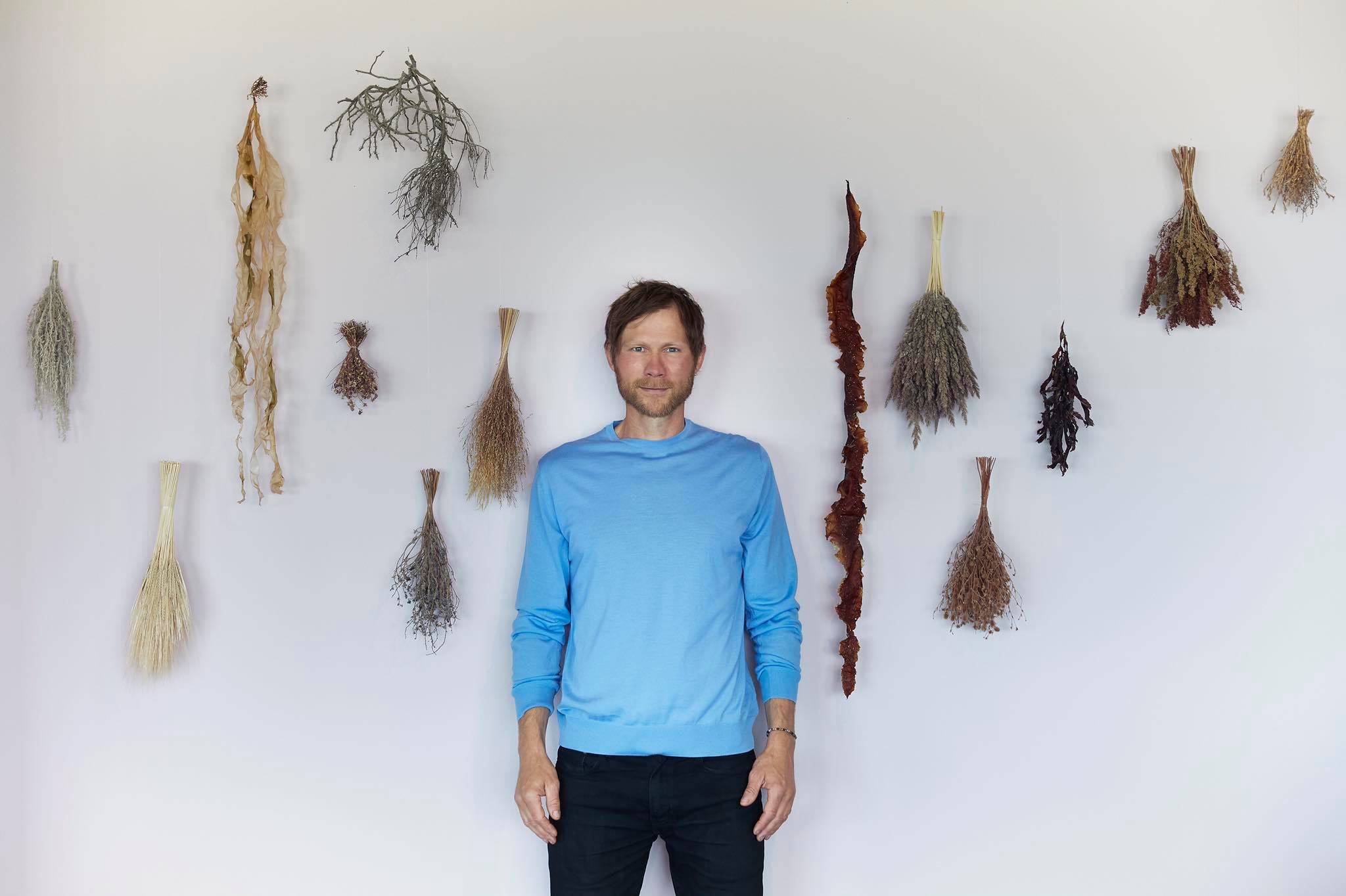
Chef Rasmus Kofoed © Geranium
GERANIUM , COPENHAGEN
A three-Michelin-stars restaurant that was also named the 5th best restaurant in the world in 2019 is run by the world's best chef in 2011 Rasmus Kofoed. Yes, Geranium has it all. This award winning eatery celebrates Scandinavia's finest seasonal ingredients with a state of the art presentation. The restaurant is located on the 8th floor in Fælledparken in Copenhagen's Østerbro district - this location highlights Geranium's vision of gastronomic clarity and diversity; the area is juxtaposition between urban and nature. The lavish restaurant thus offers sea- and vegetable-hinged courses with accompanying wine pairings, and the culinary journey at Geranium lasts at least two hours with some 17 tasting courses. Kofoed's ability to incorporate flowers, herbs and leaves in his high-end cuisine is matched by his knack for serving dishes harmoniously and with definitive pleasure.
Kafoed - the only chef in the world to have won bronze, silver and gold medals at the Bocuse d'Or, the prestigious cooking competition held every two yearsin Lyon - works closely with local farm Kiselgården and embraces a biodynamic philosophy. He mentioned that they collaborate with the farmers to experiment different things with the vegetables, such as using different varieties of potatoes or letting them sprout. He found that sprouted cauliflower and broccoli have unique textures and are great for grilling. In his opinion, meat is not necessary to add flavour to a dish, "You can also do a lot with plants ... By adding umami flavours, such as from reduced vegetable broth. That's my personal favourite, when we grill the vegetables and reduce that liquid and then finish with a touch of brown butter. It tastes so refreshing and good at the same time."
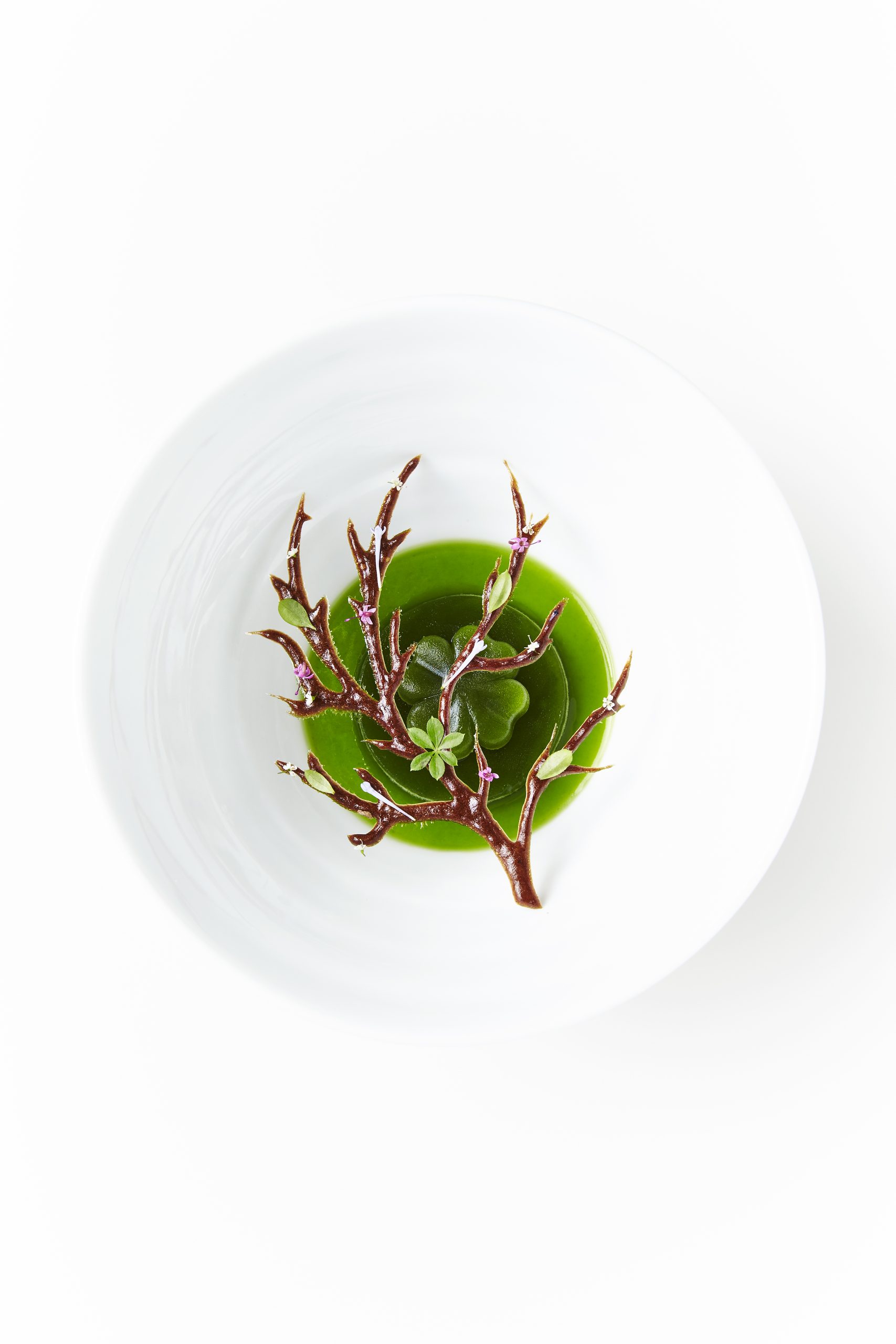
Geranium state-of-the-art-dish | © Claes Bech-Poulsen
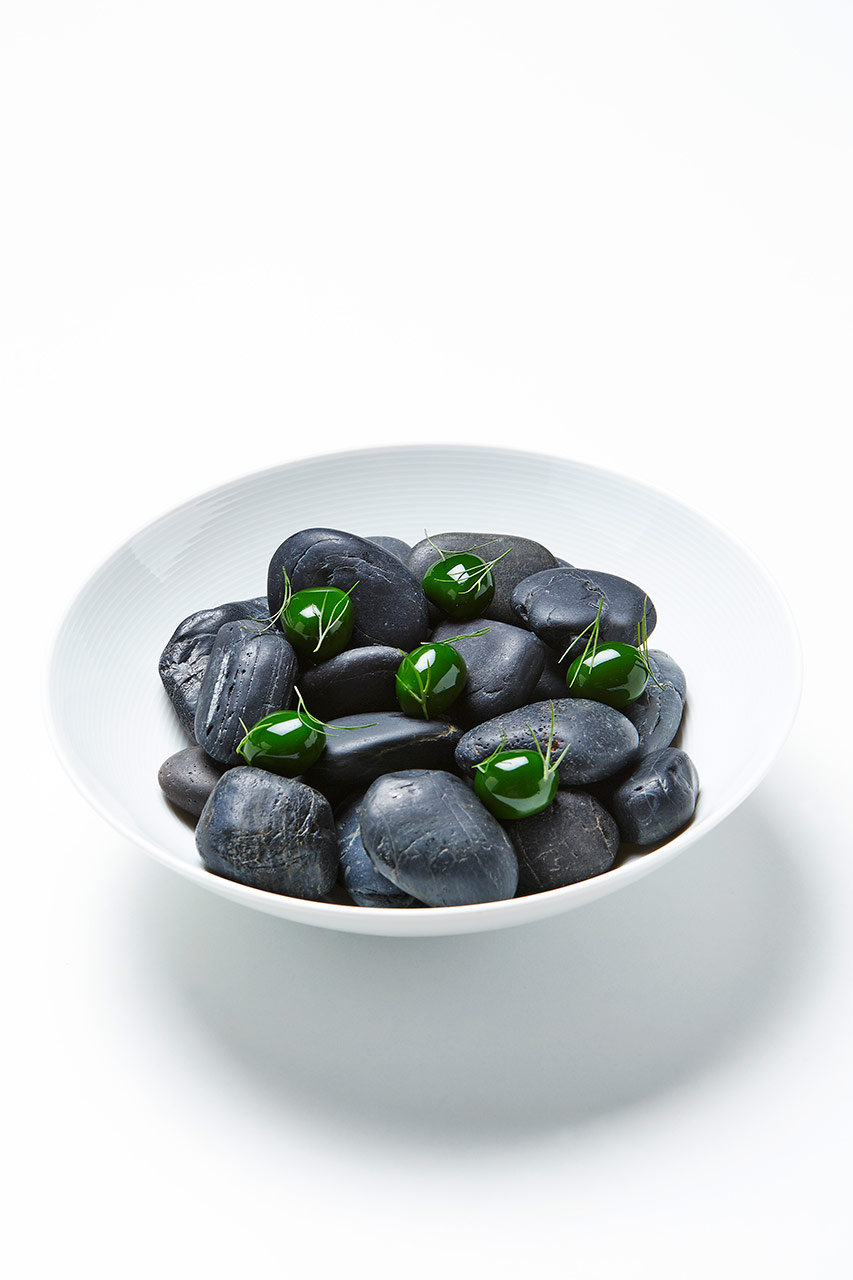
© Claes Bech-Poulsen
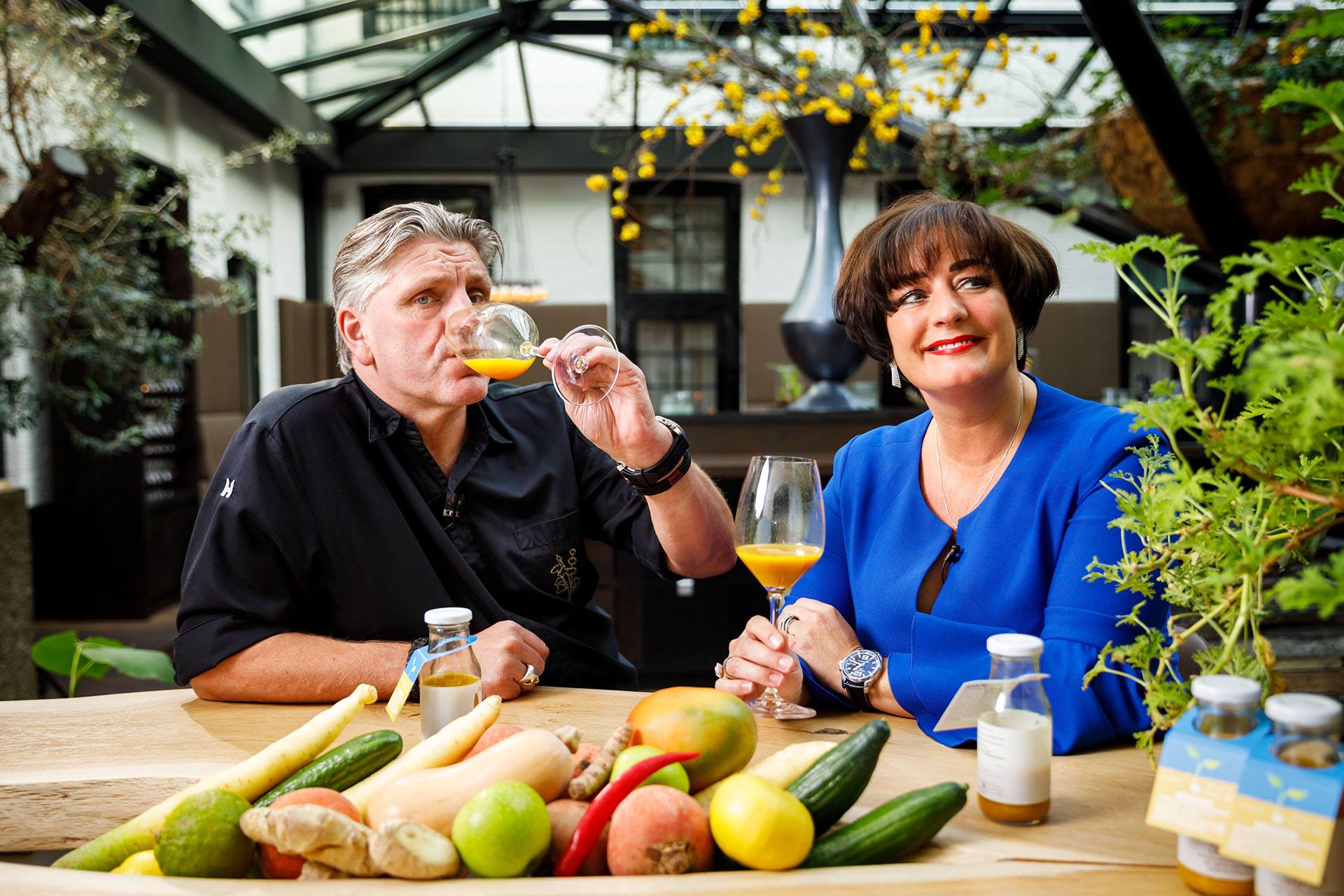
Chef Joonie Boer and Thérèse Boer, the couple behind De Librije © De Librije
DE LIBRIJE, ZWOLLE, NETHERLANDS
Long before sustainability became a thing, Chef Jonnie Boer had already sourced local produce as the main inspiration for his dishes. He always highlights the authentic flavours of nature in his food - local, hand-picked mushrooms are always the best, he says. For decades, Chef Boer has developed himself and his restaurant around the naturally beautiful surroundings of Zwolle - the restaurant grows its own herbs and plants next to diners' tables, creating a restaurant with a garden feel. "I like everything that comes from nature. Sometimes I have to wait a year to enjoy it for two weeks of pleasure, for example with magnolias." De Librije focuses on vegetables and inventive technique in his play on Dutch cuisine, and De Librije has held three Michelin stars since 2004. Chef Boer successfully makes vegetables shine in a complex interplay of flavours, using fermentation and gentle acidity to add intensity and depth.
"25 years ago we already had our own garden and greenhouse – and we were also working with farmers in the area. To me that is very logical, not a trend at all. I forage for wild ingredients almost all year round. Chefs used to get everything from France but, in the Netherlands, we have really nice produce"—Chef Jonnie Boer
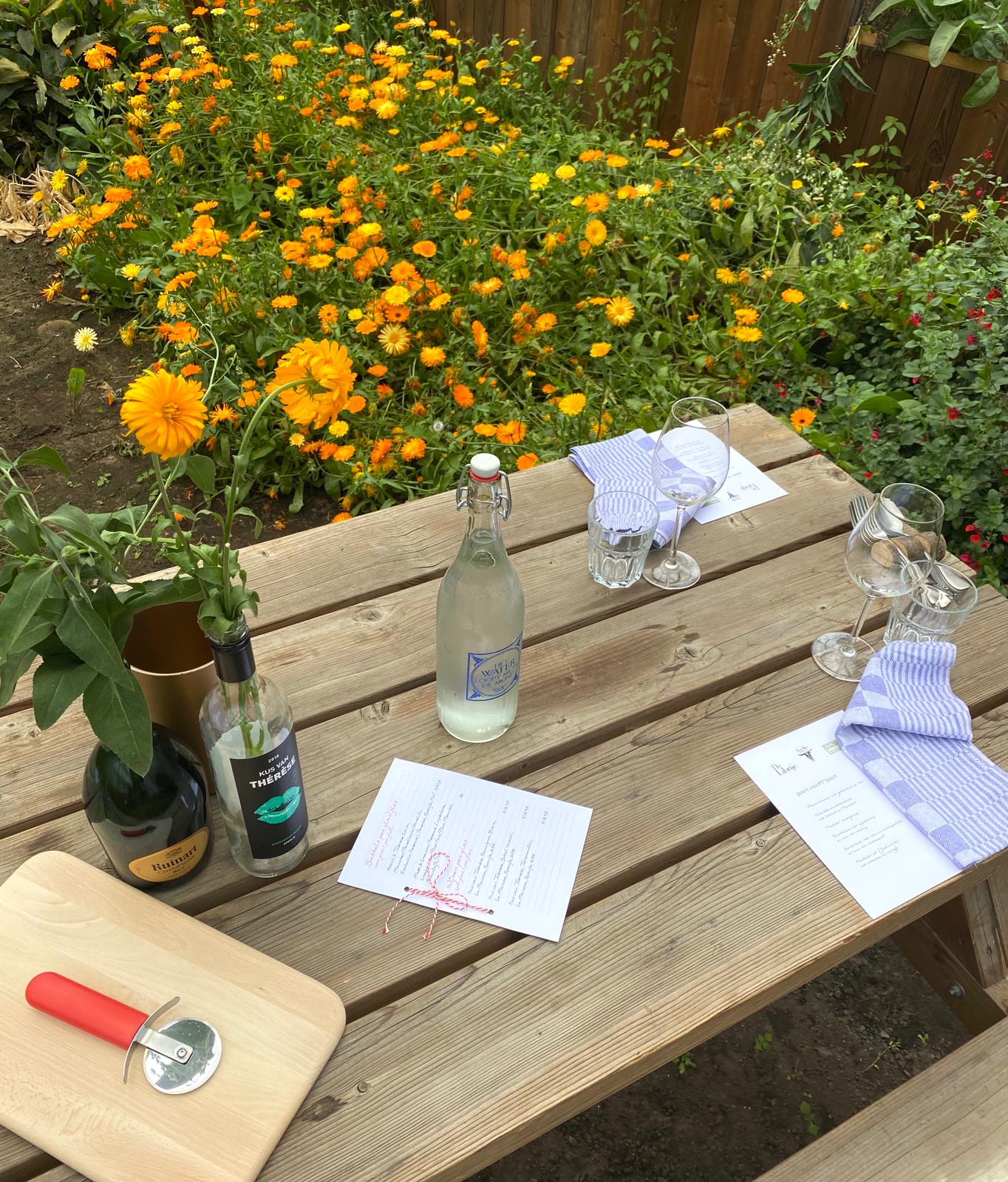
© De Librije
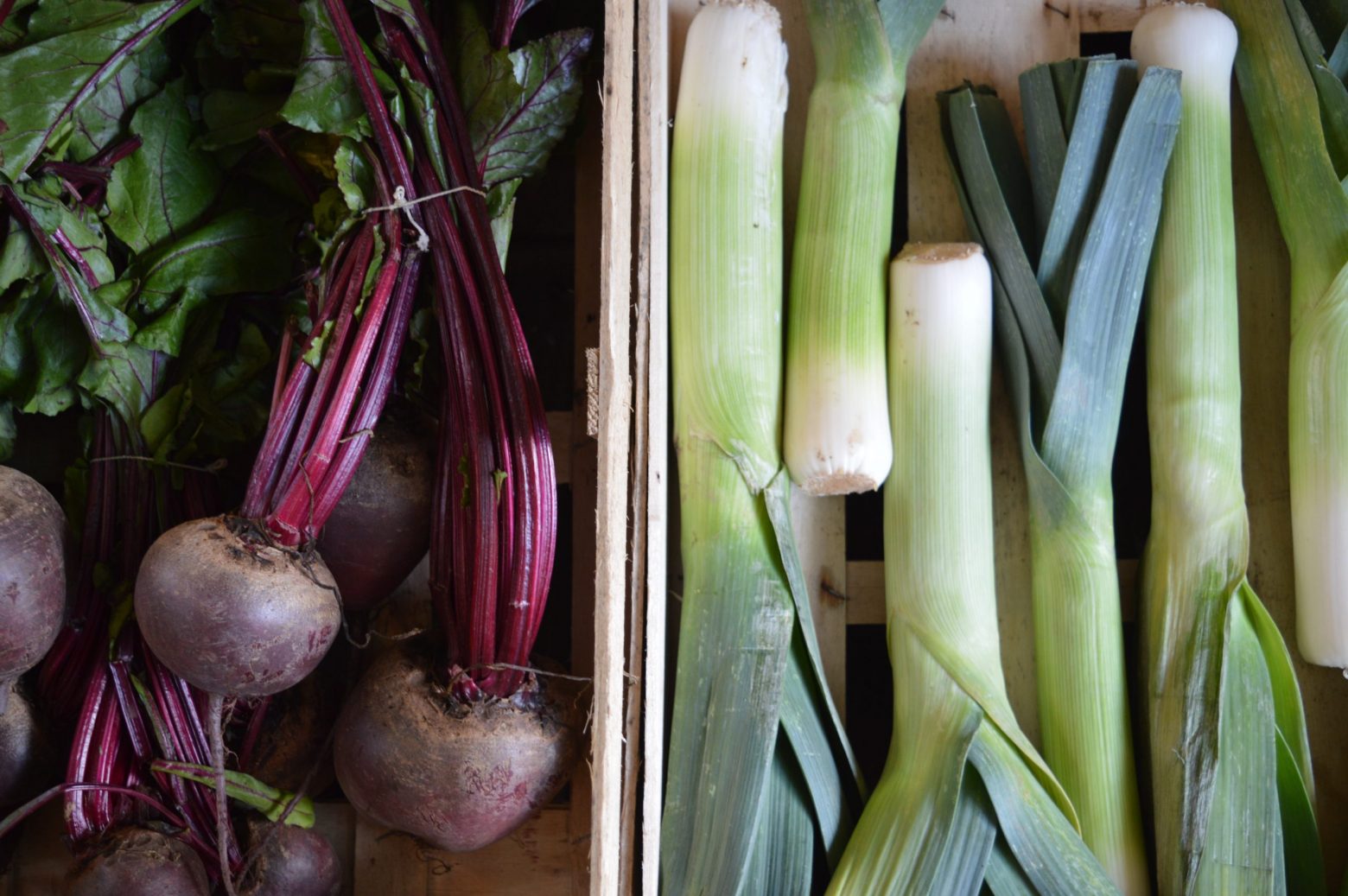
RUTZ RESTAURANT, BERLIN
For Chef Müller, sourcing regional produce is a matter of course. From a young age, he roamed his grandfather's garden, nibbling on freshly harvested vegetables. His questioning of products and their preparation methods, his commitment to the region and the season, his close collaboration with regional producers and his closeness to the producers are depicted in his "Nature & Aromas" menu at Rutz restaurant. "Everything should have its season. Especially in times when the product range is reduced, what the kitchen can do shows," says the chef.
"I only use the best produce in my kitchen - the sustainability and visual and taste authenticity of the items I use are just as important to me as their freshness and origin. That's why I work closely with small producers and seek constant dialogue."- Chef Marco Müller
In 2020, Rutz Restaurant was awarded three Michelin stars - making it the first and only restaurant in Berlin with three stars. The restaurant focuses on sustainability, authenticity and craftsmanship. The chef cultivates regional cuisine with a focus on flavours, vegetables and stocks. Chef Müller emphasises that it is crucial to pay attention to every ingredient that makes it into his kitchen - where it comes from and how it is produced. The ideas for his signature dishes come from his ongoing dialogue with nature. The international director of Guide Michelin, Gwendal Poullennec, says, "Rutz dishes are full of finesse. But they are also clearly distinguished by their distinct relationship to nature."
RESTAURANT SAT BAINS, NOTTINGHAM
Nestled in a not-so-ideal location - next to an industrial area and flyover's shadow -the restaurant Sat Bains wins the hearts of diners with its consistent, distinguish flavours. They grow their own greens in their urban garden and greenhouse, which guarantees the freshness of the ingredients. The garden feels like an oasis in the hustle and bustle of the city. The lush garden is packed with wild oyster leaves, wild garlic, broad beans, teardrop peas, orange thyme and many more, where guests can take a stroll before or after dinner.
The restaurant itself is named after the owner and chef Sat Bains, who began his culinary career in 1996. Launched in 2002, the two Michelin-starred Sat Bains Restaurant is committed to sustainability, Chef Bains says, "There are a lot of little things we've done which ultimately add up to a big contribution, like using deer hide tablecloth." As for food waste, Chef Bains has installed a Closed Loop Organics composter that saves a lot of money and benefits his garden. According to him, it takes three months for the material to mature and later be used as compost, "it's really rich in nutrients." Alongside, the restaurant social responsibility is materialised through their support to local chefs by holding the annual Young Chef of the Year competition.
"We use a closed-loop composter to turn food waste into fertiliser for our urban kitchen garden. Honey comes from our own beehives, we collect rainwater, and solar panels provide us with power. Our team work a 4 day week."— Sat Bains
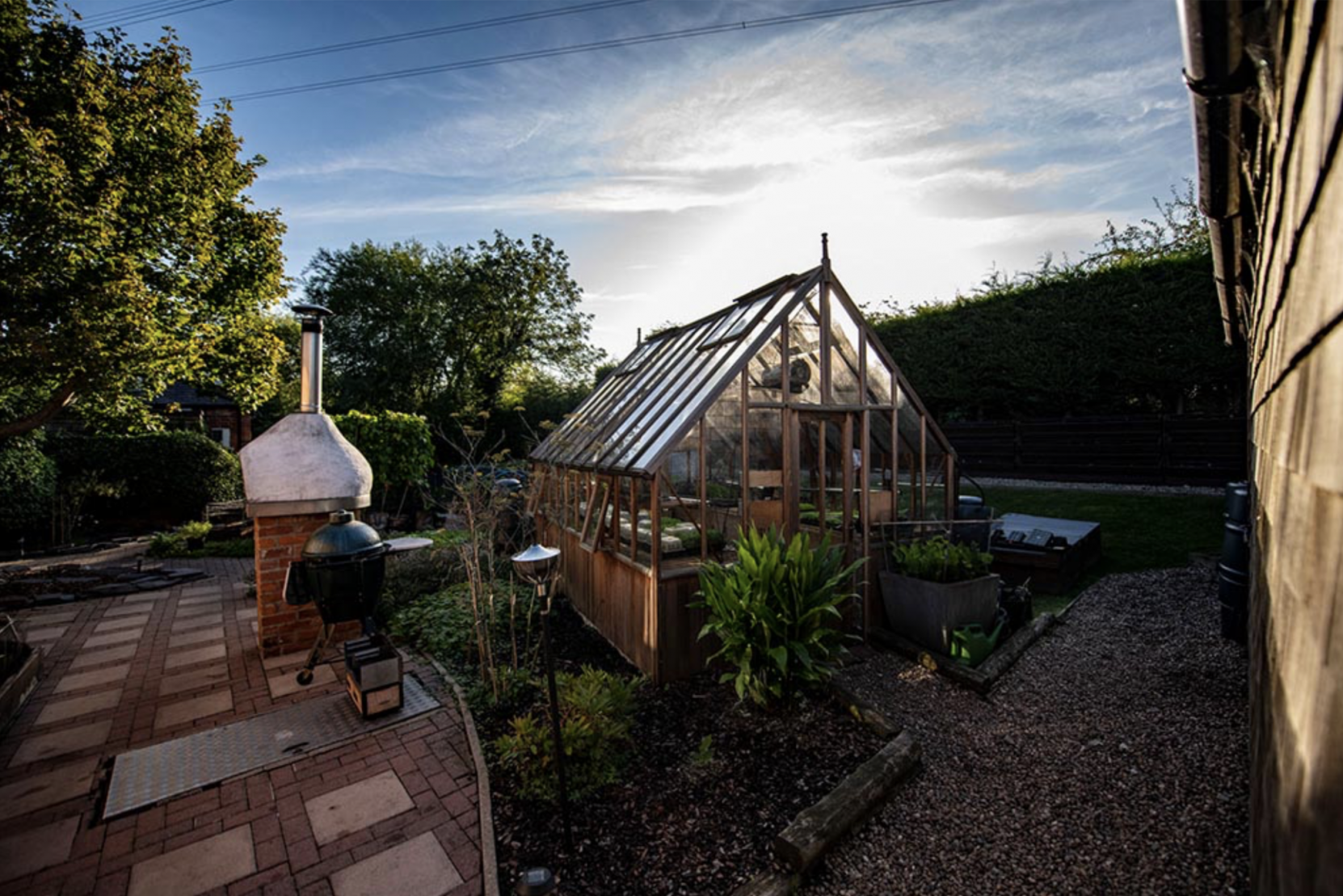
© Restaurant Sat Bains
*Featured image: Geranium restaurant, Copenhagen © Claes Bech-Poulsen

+ Words: Alvia Zuhadmono, Luxiders Magazine
Sustainable Communication student | Sweden-based writer
Connect with her through LinkedIn

